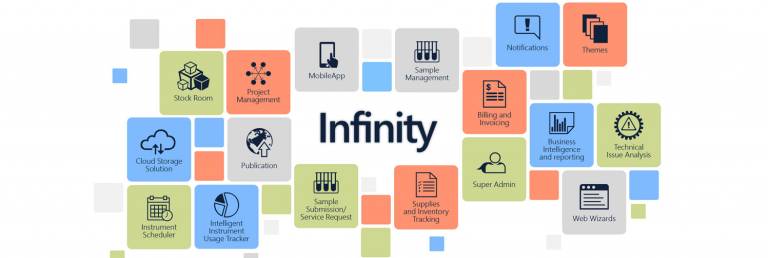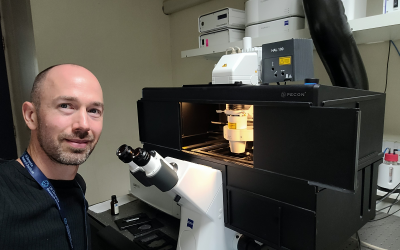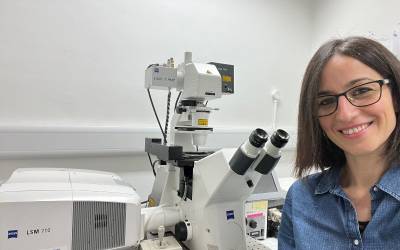We're currently trialling a system to manage and share high performance and high-cost equipment across the ION. Dr Nic Cade & Dr Noemi Esteras Gallego tell us about taking part in the pilot...

We’re working on a series of new initiatives that will change the way we work. We’re currently trialling new technologies and systems that can improve on our current methods, embracing collaboration and sharing facilities to create an efficient and sustainable ways of working that we could roll out across both Grays Inn Road and Queen Square.

A screenshot from Infinity - the pilot core management system software
The asset management and cross-charging project looks at how we maintain and manage equipment at ION and create a method to easily share high-cost equipment across the institute and ensure that the costs could be cross-charged to its users in a fair and equitable way.
Project managers Kully Sunner and Dr Lee Stanyer along with a working group of facility managers from six facilities have been investigating a variety of processes and selected a software – Infinity - where major equipment is catalogued in a central system, and users can easily search for equipment they need and book it for a small charge.
The system ensure that users have appropriate training and safety certifications and sharing costs amongst users means that equipment maintenance and repair costs are covered.
“By providing a centralised equipment booking system, a wide range of high-end equipment can be made accessible to many more people than would typically be affordable for a single laboratory alone” says Lee. “The software will also help to significantly reduce core facility administration that usually falls to the facility managers at the end of each month, allowing them to spend their time more usefully on facility operations, supporting facility users, or to focus on their own research.”
Six facilities, including DRI Microscopy, DRI Fluid Biomarker Lab, CMN Confocal, Long-Read Sequencing, Wellcome Centre for Human Neuroimaging, as well as the Institute of Ophthalmology Imaging facility are currently taking part in a trial.
Dr Nic Cade, Senior Microscope Scientist at DRI is taking part in the pilot:

Dr Nic Cade from Dementia Research Institute Microscopy is taking part in the asset management and cross-charging pilot
“When I joined the DRI three years ago, there was no system in place for managing microscope bookings – people were using things like outlook calendars and different methods to manage them. A management system was top of my wish list to make the process smoother, so I was really pleased when we started testing possible options.
So far, it has really streamlined the process. The bookings are clear and it’s easy to see alternatives if equipment isn’t available or out of action.
I think the system will really change the dynamic in terms of how we can plan for new equipment. We can easily track usage and downtime of equipment, and being able to charge a fee means that we can reinvest the money into staff training, servicing, maintenance and buying new equipment, which will be vital in the future. During the trial, we’ve been able to work with the software developers directly to add functionality where we’ve come across limitations.”
Dr Noemi Esteras Gallego, Senior Research Fellow at Clinical and Movement Neurosciences said:

"We look after the confocal microscope for Professor Andrey Abramov’s lab. It has been available for other departments to use and we’ve managed bookings using an outlook calendar, but we’ve had issues with this before – things like bookings being deleted by accident - this system should be much easier.
This is our first week taking part in the trial. I’ve had three bookings so far and we’ve found the system easy to use and pretty intuitive. It will be particularly useful to get notified when the system needs repair, or we need to send messages to all users. Its also very useful to organise and keep records of the safety inductions for new users and keep confocal documents (user guides, SOP etc) easily available for everybody."
The next step for the project is to integrate the process into UCL’s existing financial systems, so that we can automate cross-charging and enhance its efficiency. When we have fully honed, tested and evaluated the system, we hope that it can be rolled out across other part of UCL in a similar manner.
Find out more about Asset Management and Cross-Charging
 Close
Close

